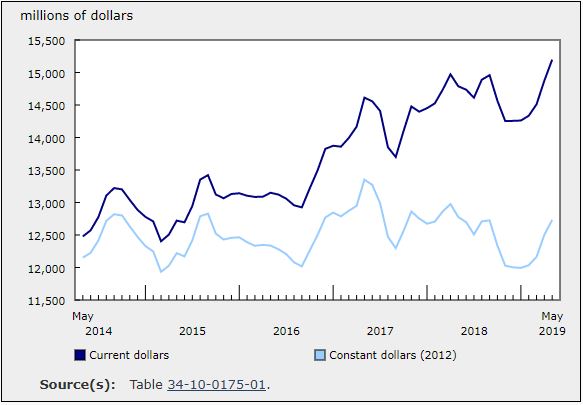Message to Presidents/Owners: Young Managers Can Cause Long-Term Problems

January 3, 2017
Paul Eitmant
During the last few weeks I have had several conversations with manufacturers and distribution management, and both raised issues with the younger managers in our industry who have the attitude that they know everything and don’t need advice.
This type of management can lead to major concerns and downfall in any organization, affecting sales, operations and profits for the companies they work for.
I used to be a young manager. I was really lucky because I had old managers (well, older) that took me under their wings and gave me guidance and advice. If I had these traits, managers I worked for always put it in the right perspective.
Now I am an “older” manager. I want to give back. As a business coach, I often have an opportunity to work with younger managers.
I came across an article by Jack Zenger (CEO of Zenger/Folkman) that addresses this issue and gives some helpful advice to top management.
In an effort to understand the root cause of poor decision-making, we looked at 360-feedback data from more than 50,000 leaders and compared the behaviour of those who were perceived to be making poor decisions with that of the people perceived to be making very good decisions. Nine factors emerged as the most common paths to poor decision-making. Here they are in order from most to least significant.
1 Laziness. This showed up as a failure to check facts, take the initiative, confirm assumptions, or gather additional input. Basically, such people were perceived to be sloppy in their work and unwilling to put themselves out. They relied on past experience and expected results simply to be an extrapolation of the past.
2 Not anticipating unexpected events. It is discouraging to consistently consider the possibility of negative events in our lives, and so most people assume the worst will not happen. Unfortunately, bad things happen fairly often. People die, get divorced, and have accidents. Markets crash, house prices go down, and friends are unreliable. There is excellent research demonstrating that if people just take the time to consider what might go wrong, they are actually very good at anticipating problems. But many people just get so excited about a decision they are making that they never take the time to do that simple due diligence.
3 Indecisiveness. At the other end of the scale, when faced with a complex decision that will be based on constantly changing data, it’s easy to continue to study the data, ask for one more report, or perform yet one more analysis before a decision gets made. When the reports and analysis take much longer than expected, poor decision makers delay, and the opportunity is missed. It takes courage to look at the data, consider the consequences responsibly, and then move forward. Oftentimes indecision is worse than making the wrong decision. Those most paralyzed by fear are the ones who believe that one mistake will ruin their careers and so avoid any risk at all.
4 Remaining locked in the past. Some people make poor decisions because they’re using the same old data or processes they always have. Such people get used to approaches that worked in the past and tend not to look for approaches that will work better. Better the devil they know. But too often, when a decision is destined to go wrong, it’s because the old process is based on assumptions that are no longer true. Poor decision-makers fail to keep those base assumptions in mind when applying the tried and true.
5 Having no strategic alignment. Bad decisions sometimes stem from a failure to connect the problem to the overall strategy. In the absence of a clear strategy that provides context, many solutions appear to make sense. When tightly linked to a clear strategy, the better solutions quickly begin to rise to the top.
6 Over-dependence. Some decisions are never made because one person is waiting for another, who in turn is waiting for someone else’s decision or input. Effective decision makers find a way to act independently when necessary.
7 Isolation. Some of those leaders are waiting for input because they’ve not taken steps to get it in a timely manner or have not established the relationships that would enable them to draw on other people’s expertise when they need to. All our research (and many others’) on effective decision-making recognizes that involving others with the relevant knowledge, experience, and expertise improves the quality of the decision. This is not news. So the question is why. Sometimes people lack the necessary networking skills to access the right information. Other times, we’ve found, people do not involve others because they want the credit for a decision. Unfortunately they get to take the blame for the bad decisions, as well.
8 Lack of technical depth. Organizations today are very complex, and even the best leaders do not have enough technical depth to fully understand multifaceted issues. But when decision makers rely on others’ knowledge and expertise without any perspective of their own, they have a difficult time integrating that information to make effective decisions. And when they lack even basic knowledge and expertise, they have no way to tell if a decision is brilliant or terrible. We continue to find that the best executives have deep expertise. And when they still don’t have the technical depth to understand the implications of the decisions they face, they make it their business to find the talent they need to help them.
9 Failure to communicate the what, where, when, and how associated with their decisions. Some good decisions become bad decisions because people don’t understand — or even know about — them. Communicating a decision, its rational and implications, is critical to the successful implementation of a decision.
Waiting too long for others’ input. Failing to get the right input at the right time. Failing to understand that input through insufficient skills. Failing to understand when something that worked in the past will not work now. Failing to know when to make a decision without all the right information and when to wait for more advice. It’s no wonder good people make bad decisions. The path to good decision-making is narrow, and it’s far from straight. But keeping in mind the pitfalls can make any leader a more effective decision maker.
My advice to presidents, owners and top key decisions-makers is that they need check up on these young decision makers in their organizations and make sure they are willing to take advice and constructive course direction from the older generation.
Nine of ten times these older managers already have the battle scares during their own path top.
Paul Eitmant is President and CEO of IP Group International, which serves the needs of business-to-business enterprises in over 30 countries worldwide by adding specialized expertise to the business planning and implementation process; Tel: 480.488.5646; paulipgroup@cox.net.











